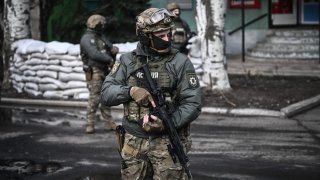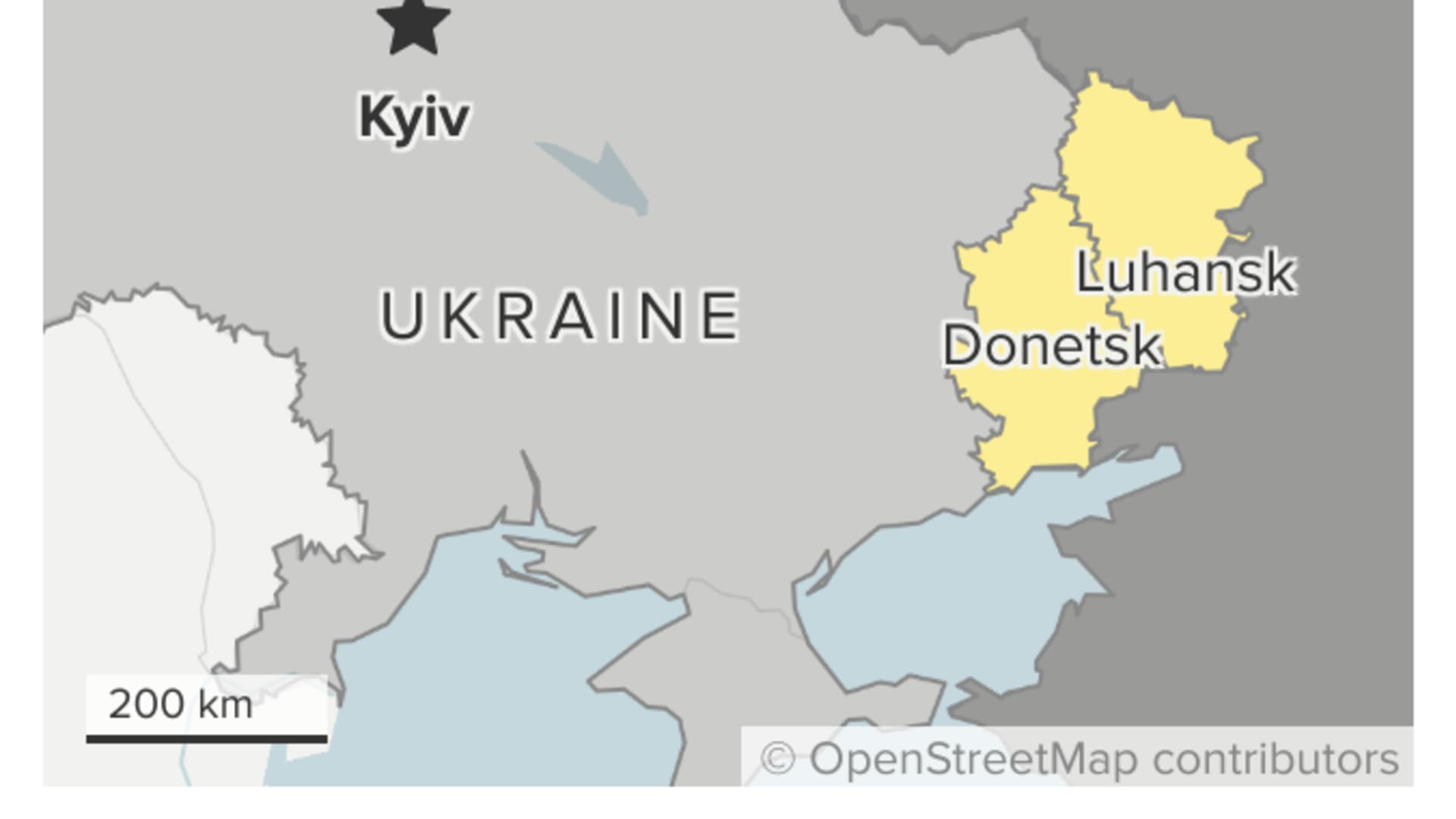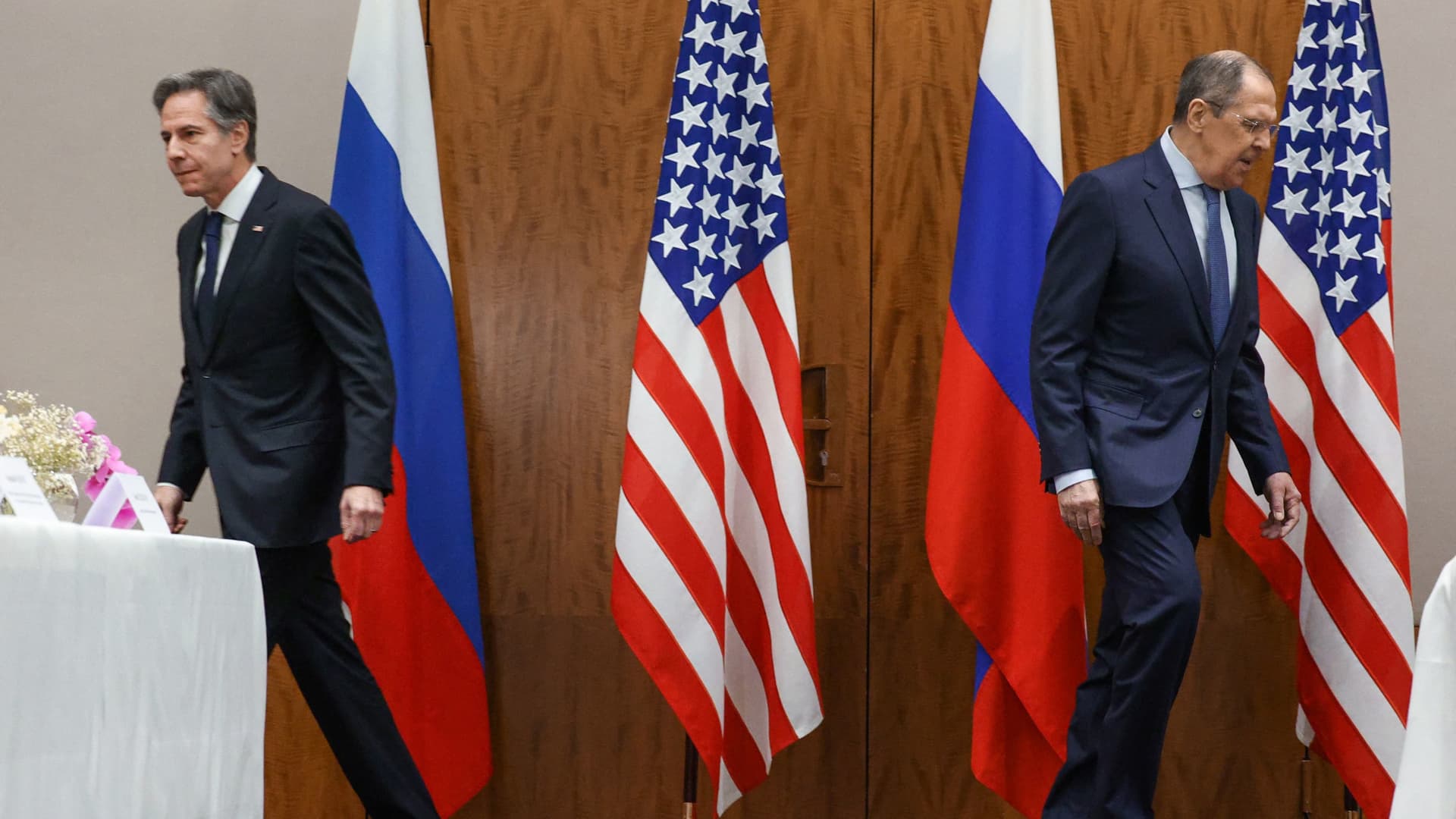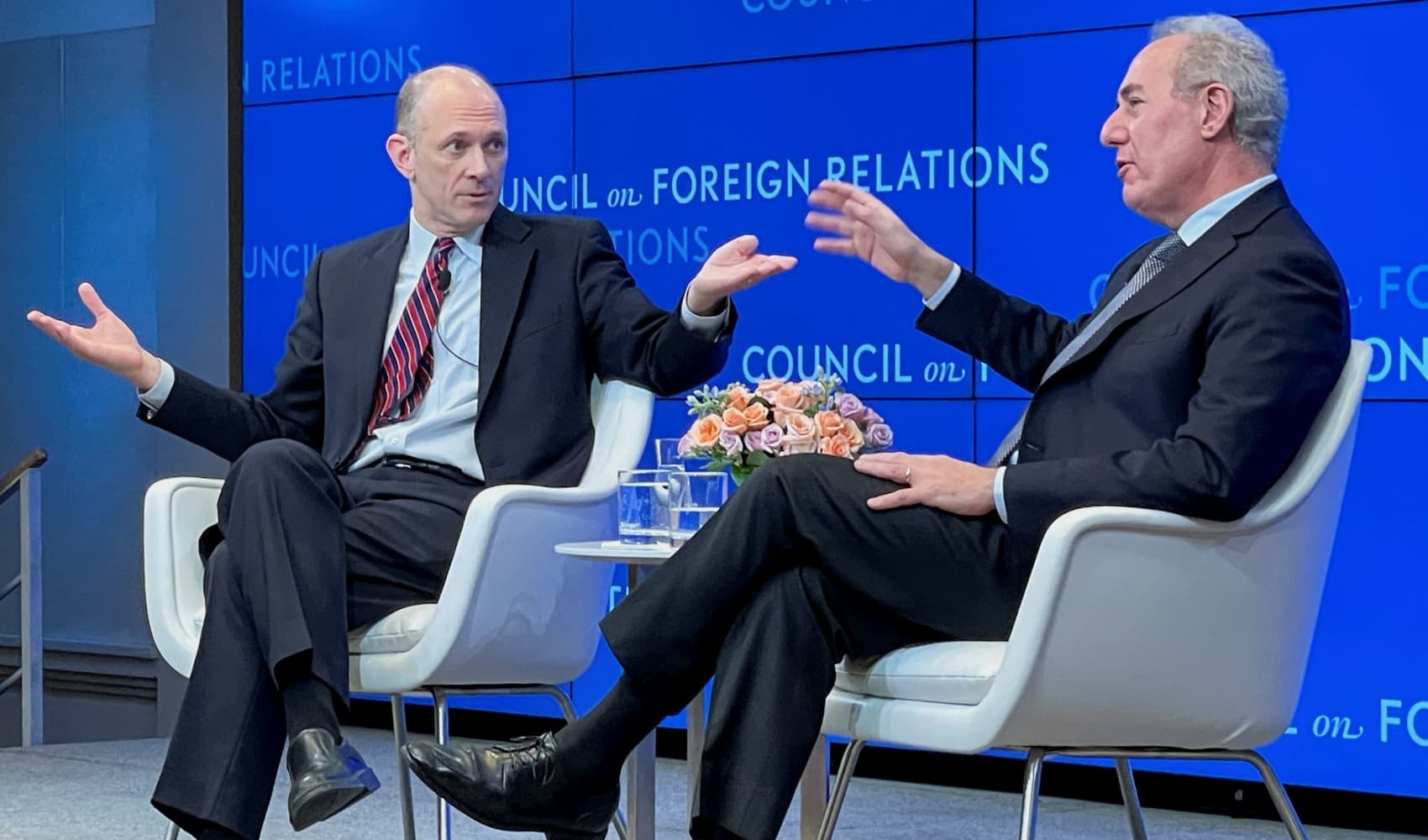
- Russian President Vladimir Putin is seeking "regime change" and will likely go all the way and invade the rest of Ukraine, according to Jeffrey Edmonds, a former director for Russia at the National Security Council.
- On Tuesday, the U.S. and U.K. announced fresh sanctions targeting Russian financial institutions, individuals and sovereign debt after Putin ordered troops into two pro-Moscow regions in eastern Ukraine.
- It doesn't make sense for Putin to just hold on to the separatist territories, Edmonds said. "He's had these territories since 2014, so just moving more troops in there, I don't think gets him what he wants."
Russian President Vladimir Putin is seeking "regime change" and will likely go all the way and invade the rest of Ukraine, according to a former director for Russia at the National Security Council.
"I think given the size of the force, the rhetoric we've heard about Ukraine overall and its statehood, I think you're going to see him [Putin] go all the way," Jeffrey Edmonds told CNBC's "Squawk Box Asia" on Wednesday.
Get DFW local news, weather forecasts and entertainment stories to your inbox. Sign up for NBC DFW newsletters.
Putin ordered troops into two pro-Moscow regions in eastern Ukraine on Monday, after announcing he would formally recognize the independence of the separatist areas.
In a swift response to the incursion, the U.S. and U.K. on Tuesday announced fresh sanctions targeting Russian financial institutions, individuals and sovereign debt. President Joe Biden called Russia's actions constitute the beginning of "an invasion" of Ukraine, threatening more U.S. sanctions could come.
Putin will likely go "all the way to the capital," Edmonds said, referring to Kyiv, the Ukrainian capital.
Money Report
"What you're seeing right now is a lot of false flag operations. These claims… [that] the people on the East are having to fight back this onslaught of Ukrainian offensives, which just isn't true," Edmonds added.
Russia's state-controlled media previously claimed that Ukrainian government forces had launched shelling strikes against Moscow-backed rebels in the East.

The U.S. previously warned that Moscow could use false claims about the conflict as a pretext for an invasion of Ukraine.
"This is the pretext he's trying to create so that when he actually invades the rest of Ukraine, that's his reason for going in," said Edmonds, who is currently a senior analyst at CNA Corporation, a security research and analysis firm.
Asked whether he was referring to a regime change, he added: "We are."
Russia plan for further attacks
The Kremlin will now recognize the rebel-held regions of Donetsk and Luhansk — areas controlled by Russia's proxies since 2014.
Despite earlier claims it would withdraw some troops, Russian has amassed more troops at its border with Ukraine in recent days. The U.S. estimates Moscow has stationed between 169,000 to 190,000 military personnel near Ukraine — up from 100,000 on Jan. 30.
Given the significant military build-up, it doesn't make sense for Putin to just hold on to the separatist territories, Edmonds said.
"He's had these territories since 2014, so just moving more troops in there, I don't think gets him what he wants," he said.
On Tuesday, NATO Secretary General Jens Stoltenberg, said there is "every indication" that Russia is planning for a full scale attack on Ukraine.
"We see that more and more of the forces are moving out of the camps and are in combat formations and ready to strike. And we see the ongoing provocations in Donbass and the different false flag operations where they try to create a pretext for an attack," Stoltenberg said at a press briefing, following an extraordinary meeting of the NATO-Ukraine Commission.
Donbass refers to the industrialized region in eastern Ukraine, where the separatist regions of Donetsk and Luhansk are located.
The main reason for Putin's aggression toward Ukraine is to reinforce Russia's security importance in Europe, according to Edmonds.
He wants to ensure that Moscow is deeply involved in "any kind of decisions or the overall structure in Europe," he said. It's about "restoring Russia to the place, it believes it leads in Europe."
'Hot conflict'
U.S. Secretary of State Antony Blinken on Tuesday called off his planned meeting with Russian Foreign Minister Sergey Lavrov{
Blinken calls off meeting with Russian Foreign Minister Lavrov

Secretary of State Antony Blinken said Tuesday that he will no longer meet with Russian Foreign Minister Sergey Lavrov, citing Moscow's continued troop movement into Ukraine.
"If Moscow's approach changes, we remain, I remain very much prepared to engage," Blinken said during a press conference alongside Ukrainian Foreign Minister Dmytro Kuleba.
Last week, Blinken agreed to meet with Lavrov on the condition that Russian forces do not further advance into Ukraine. President Joe Biden, who met with Kuleba earlier on Tuesday, said Russian President Vladimir Putin had started an invasion of Ukraine.
Biden announced a slew of retaliatory sanctions aimed at Russian financial institutions, Moscow's sovereign debt as well as Russian elites and their family members.
– Amanda Macias
The sanctions will be "biting" and have a direct impact on the Russian economy, but this has been a "hot conflict for eight years," said Jonathan Katz, a director of Democracy Initiatives and senior fellow with the German Marshall Fund of the United States. He was referring to Russia's illegal annexation of Crimea in 2014.
"We've crossed the threshold with Mr Putin's speech two days ago, and his willingness to go into Donbass with Russian troops," Katz told CNBC. "I think we were further from peace than we were three days ago, a week ago, two weeks ago," he added.
"Hot conflict, Cold War — I think they're both mixed together into what is, unfortunately, going to be something that the United States, NATO, the EU and its partners will be dealing with for a long time," he said.






